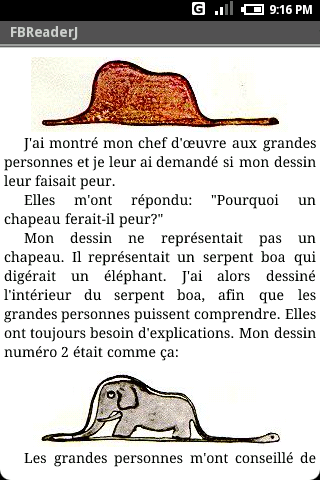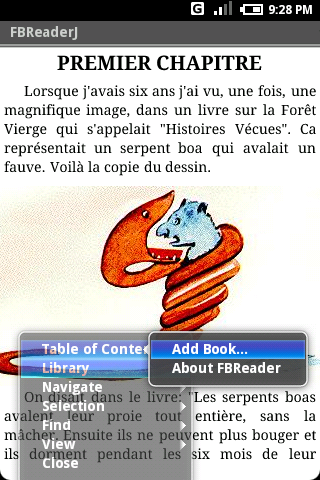E-book reader still emerging for Android phones
Google's Android Market online store is slated to gain some new software applications over the next few months, and it looks as though a native e-book reader will be one of them. But developers may want to fix some glitches first.
An Android edition of a well-acclaimed e-book reader is on its way to Google's Android Market, but not as quickly as software developers first hoped.
The latest release of the Android clone of FBReader -- an e-book reader for Unix and Windows computers -- is now posted to the Web and available for free download. Developers have also been creating versions of the reader for other platforms, ranging from Mac OS X to Nokia Internet tablets.
The Android reader, FBReaderJ, first entered beta on April 13. Recompiled with the newest version of Android software developers kit (SDK), the new 0.2.1 version released this week "should work on real devices," according to information on FBReader's Web site.
 Nikolay Pultsin, an FBReader developer, wrote two weeks ago that his open source project expected to submit FBReaderJ 0.2.1 to the Android Market upon its release.
Nikolay Pultsin, an FBReader developer, wrote two weeks ago that his open source project expected to submit FBReaderJ 0.2.1 to the Android Market upon its release.
"[The] current version of FBReaderJ contains several annoying issues. We plan to release version 0.2.1 and submit FBReaderJ to the Android Market after fixing these issues," he said on October 19.
Yet although it was made available this week, 0.2.1 still contains some glitches. "0.2.1 was released, but I'm still not sure FBReaderJ is ready for the Android Market: it works well, but zip reading is extremely slow at the moment. Now we plan to submit FBReaderJ into the Android Market after fixing this issue," Pultsin acknowledged on November 3.
In addition, "several UI issues are still not fixed," according to other notes on the FBReader site. "[The] options dialog is not standard. Menu icons are still not presented."
FBReaderJ supports several e-book formats -- oeb, epub, fb2 -- and in future releases, open source developers plan to expand this list to encompass the same formats as the original FBReader. Direct reading from zip, tar, and gzip archives is also supported.
Ultimately, open source developers working on the project expect the native Android reader to be added to Android Market, an online software store opened by Google with the launch of the first Android phone -- T-Mobile's G1 -- on October 22. Initially containing only a few dozen software applications, Android Market is still in beta. But on October 23, Google opened up the store to a lot more developers, also announcing that Android open source developers will be able to start charging for their software in January.

